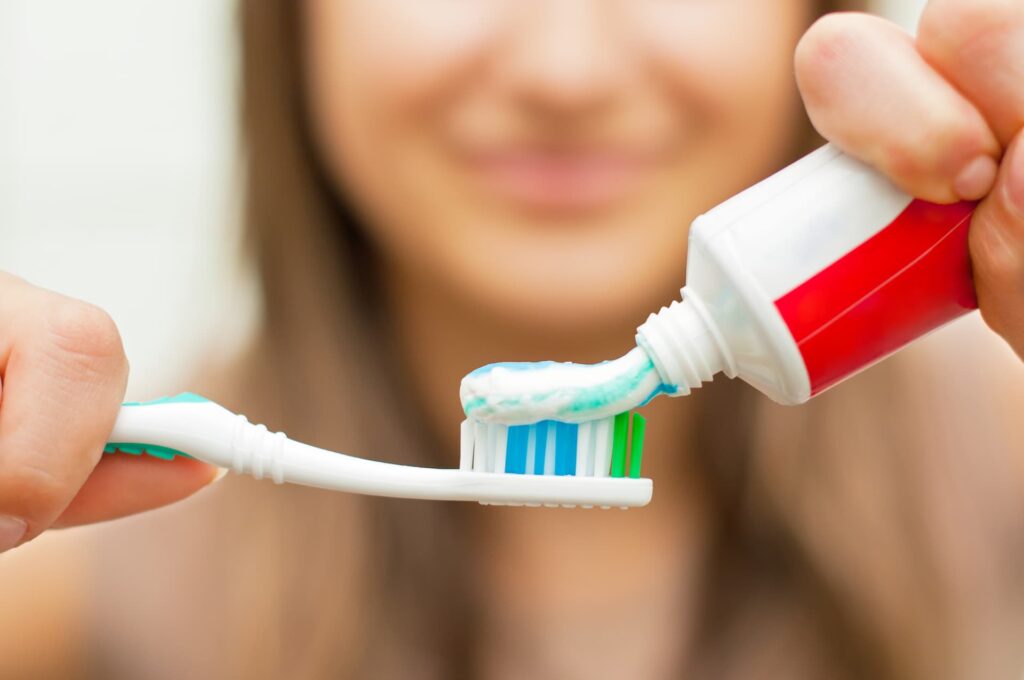So you’ve just had a dental implant. What can you do to ensure faster healing after dental implant surgery?
This guide addresses that question and provides healing tips for faster recovery after dental implants so that you can get back to life quicker than ever before.
One key factor in healing faster after dental implant surgery is to follow the instructions provided by the doctor. Taking the necessary steps to promote healing can help minimize healing time and ensure a successful outcome.
This article will look at tips to help you heal faster after dental implant surgery.
The First 24 Hours After Surgery
The first 24 hours after surgery can be the most uncomfortable, but we’re here to help you prepare.
You can expect some bleeding, swelling, and pain during the first 24 hours after dental implant surgery. Pain can usually be managed with pain medication prescribed by the doctor, but there are ways to mitigate the pain. For example, you should keep their heads elevated and use cold or warm compresses to reduce swelling. Remember to rinse your mouth with salt water every few hours or as the doctor directs.
What about swelling?
Swelling is a common side effect of dental implant surgery, and will most likely be the worst during the first 24 hours. To reduce swelling, try keeping your head elevated, apply cold or warm compresses, and avoid hot and spicy foods. And it goes without saying, but it is best to avoid strenuous physical activity for a few days after the procedure.
What about bleeding?
You can expect some bleeding during the first few hours after the dental implant surgery. To minimize bleeding, the patient should use gauze pads and press gently on the area for 15 minutes. If the bleeding doesn’t stop, it might be time to check in with the doctor.
What about food during the first 24 hours?
We know it isn’t what you want to hear, but avoiding hard foods (or anything that you need to chew) is the best course of action. Stick to smoothies, liquid soup, and yogurt. And remember to drink plenty of fluids to keep your body hydrated.
As we mentioned, it’s best to avoid strenuous physical activity, but the chances are pretty high that you won’t be in the mood for a Crossfit class or even a jog. But don’t let that get you down- you’ll be up and running again in no time, and giving yourself some time to heal is important.
The Importance of Rest and Relaxation

Never underestimate the power rest and relaxation can have for healing.
Rest allows the body to focus on healing the implant area, so take it easy for the first few days after your procedure, and you’ll help speed up the healing process.
It’s normal to feel frustrated if you’re forced to take it easy. Well, some people relish the idea of lounging on the couch, while others might find it frustrating. Whatever your personality, we suggest making yourself comfortable and enjoying a well-deserved rest!
The first step is to keep yourself comfortable, stay hydrated and use pain medication or mouth rinse to minimize the discomfort and inflammation.
But don’t forget to take care of the surgical site while you’re resting! Things like smoking and eating solid foods too soon can cause the area to become inflamed or irritated. And remember to keep the area clean. Your doctor will advise how best to prevent infection, but this usually entails a prescribed mouth rinse and gentle brushing.
Proper Oral Hygiene Practices
Preventing infection should be a top priority while healing after dental implants- it will also help speed up the healing process!

Use these tips to ensure your implant site remains hygienic:
- Brushing and flossing twice daily is essential to remove food particles and plaque from the surgical area and to prevent infection, but remember to do this gently.
- It is also important to rinse the mouth with an antiseptic solution to help reduce swelling and inflammation and promote faster healing.
- Saltwater rinses can help to reduce infection and inflammation and to promote faster healing. Interdental brushes are helpful for cleaning around and under the implant and can help to remove food particles that can cause further irritation.
- Other products that can help with oral hygiene include antiseptic mouthwashes, tongue scrapers, and dental floss.
Besides keeping the site clean, you can also focus on the type of food and nutrition you’re getting.
Nutrition for Healing
Eating might be the last thing on your mind after your implant surgery, but ensuring you get the proper nutrition for your body to heal is vital.
But how do you do that?
We all know by now that a healthy diet is a balanced diet. Eating a healthy diet full of protein, vitamins, and minerals can help speed up recovery.
Protein-rich foods such as fish, lean meats, and beans are especially important for healing after dental implant surgery, as they help to promote tissue growth and repair.
What to Eat After Dental Implant Surgery: Fueling Your Recovery
But you might already know all that; what you might not know yet is that you can also stave off inflammation by eating a diet rich in anti-inflammatory foods. Yes, eating your way out of inflammation and into health is possible.
Here are some extra tips for eating your way to recovery:
- Berries, green leafy vegetables, and fatty fish are all prime examples of anti-inflammatory foods.
- Foods like fish, turkey, legumes, dark leafy greens, and dairy products are excellent sources of protein that can help your body heal faster after dental implant surgery.
- Vitamin C supplements can help reduce inflammation and speed up healing.
- Stay hydrated and drink plenty of water throughout the day.

Remember that no matter what food you choose to eat, make sure it’s soft enough for your dental implant. There will be more than enough time to crunch down on your favorite foods post-recovery. But to get there, you need to take care of your recovery.
Follow-Up Care and Recovery
Follow-up care is essential for a speedy and successful recovery, and making regular follow-up appointments with your dentist will ensure the healing process is going according to plan.
During these appointments, your dentist will check the surgical site to ensure it is healing properly and help you with any questions or concerns about the healing process.
Follow-up appointments may also include X-rays to better assess the implant’s positioning and ensure that the bone is fusing to the implant. The good news is that your doctor can also assess what medications may help to quicken recovery and even reduce the discomfort you may be feeling.
FAQs
How long does it take for gums to heal after dental implants?
Gums typically heal within 2-4 weeks after a dental implant placement. However, it may take longer for the gums to fully heal, depending on the health of the patient.
How do I know if my dental implant is healing correctly?
Your dentist will provide you with regular check-ups to monitor the progress of your dental implant healing. During check-ups, they will assess the implant site and provide you with information regarding how to best care for the area.
How long after dental implants can I eat normally?
You should be able to eat normally within a few days of your dental implant procedure. However, it is important to avoid any hard or sticky foods that could interfere with the healing process.
How long does it take for dental implants to settle?
Dental implants can take up to 6 months to fully settle into the jawbone.
From Surgery to Smile: A Complete Guide to Dental Implant Healing Stages
Healing Faster After Dental Implants is Easier than You Think
Dental implants are an excellent solution for tooth loss, but no one really looks forward to the discomfort of healing.
But with proper care and attention to healing during the first few weeks after surgery, you can heal faster after dental implants. And that means reduced risks of infection or other complications associated with dental implant surgery- it’s a win-win!
At Hanna Dental Implant Center, we offer comprehensive dental implant services to help you get the smile you’ve always wanted. Our experienced team of dental professionals is dedicated to providing quality care to ensure a speedy recovery.
Contact us today to learn more about our services and how we can help you achieve a beautiful and healthy smile.



